Quincy Jones' Produced Albums
This is the final installment, Part V, of our tribute to the renowned American producer Quincy Jones (referred to simply as Quincy below).
In the previous installment, we focused on Quincy Jones' solo albums, exploring the albums that marked the pinnacle of Quincy’s musical career, delving into the context and reasons behind their success.
In this final chapter, we turn our attention to the acclaimed albums produced by Quincy for various artists. We will also explore his extensive network of collaborators, shedding light on the essence of "Quincy Music" and its enduring influence.
What Is Quincy Jones' Music?
When asked, “What is Quincy Jones’ music like?” one could provide countless descriptions: glamorous and luxurious, beautiful and intellectual, filled with clever surprises, unlike anything you’ve heard before, stylish and cool, pop yet always fresh, emotionally moving, unmatched by anyone else, featuring the finest musicianship, layered yet accessible, both Black and White, complex yet impossible to replicate, rich in sound quality, intricate yet simple. The list goes on.
Quincy had a rare gift for subtly distilling the most exquisite elements of music and presenting them to us in various forms. He was, undeniably, an extraordinary musician.
Miles Davis, in his autobiography, described Quincy as “the kind of person who could walk into someone’s house and not get bitten by the guard dog—like a newspaper boy.” Quincy was innately likable, a trait that drew people and talent to him. It’s easy to imagine how this natural charisma cultivated a network of admirers and collaborators, which in turn led to the creation of some truly exceptional music.
USA for Africa
In 1984, Bob Geldof, the vocalist of The Boomtown Rats, initiated a call to action that brought together British musicians to release "Do They Know It’s Christmas?" as a response to the famine crisis in Africa. Bolstered by MTV’s influence, the song became a massive hit.
This movement sparked an even larger project in the United States: USA for Africa. Quincy Jones was brought on as producer, while Michael Jackson and Lionel Richie composed the iconic anthem, "We Are the World."
Watching the promotional video, one can’t help but notice how the assembled musicians, despite their individual fame and talent, appeared almost subdued in Quincy’s presence, as if they were meek house cats in front of a lion. Even the greatest artists showed deep reverence for him. Witnessing such a scene makes it instantly clear just how extraordinary Quincy Jones truly was.
The artists who gathered for "We Are the World" included major stars of the time such as Michael Jackson, Stevie Wonder, Bob Dylan, Diana Ross, Billy Joel, Paul Simon, Bruce Springsteen, Al Jarreau, Daryl Hall, and Dionne Warwick. The song is structured so that the participating musicians each sing about two measures in turn.
Among the performances, there is a particularly memorable scene.
Cyndi Lauper was a young artist who had just released her debut album in 1983. Among the gathering of music legends, Cyndi was entrusted with singing two measures after the grand chorus. However, eager to sing a “WOWWOW~” phrase not written in the sheet music, she nervously asked Quincy if it would be okay to include it.
Quincy casually gave his approval.
Cyndi Lauper’s performance became one of the most memorable moments in "We Are the World," adding flair to the song. Her later interview, where she admitted, “I was scared but nervously asked anyway,” makes perfect sense.
Even from this small anecdote, Quincy’s flexible approach and respect for the artistic expression of musicians are evident. While people who achieve great success often stop listening to others, Quincy’s willingness to break down barriers between people may have been the key to his unparalleled talent as a producer—the man who could, metaphorically, never be bitten by a dog.
■ Recommended Album: George Benson - Give Me the Night (1980)
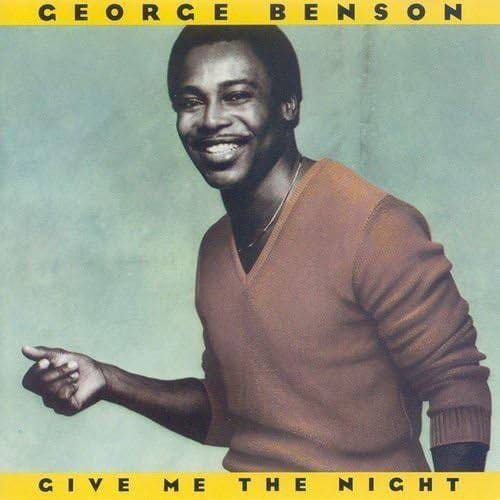
Released in 1980, this masterpiece by jazz guitarist George Benson not only marked his breakthrough but also earned him a Grammy Award.
The album, produced by Quincy Jones, topped both the Soul and Jazz Album charts and reached No. 3 on the Billboard Pop Album chart.
George Benson, already renowned as a guitarist in the jazz scene, was propelled to the forefront of the music world thanks to Quincy’s production. With this album, Benson won three Grammy Awards, including Best Male R&B Vocal Performance.
However, some jazz fans criticized Benson, claiming he had succumbed to commercialism and lost his originality. Despite such comments, Quincy’s ability to elevate Benson from being “just a jazz guitarist” (not in a negative sense) to a global sensation is nothing short of astonishing.
Recommended Track: "Give Me the Night"
The song that brought George Benson's name to worldwide fame is a masterpiece, and the key figure behind it is composer Rod Temperton. It was Quincy Jones who recognized the brilliance of Rod’s compositions, and by featuring them prominently, he also propelled Michael Jackson to stardom. Hits like Thriller and Off the Wall were also penned by Rod Temperton. At the time, Rod Temperton was one of Quincy Jones’ most prized protégés, to an extraordinary degree.
It’s astonishing to note that five songs on this album were composed by Rod Temperton. I am convinced that Rod Temperton and Quincy Jones were instrumental in removing the "black music" image from George Benson, steering his sound toward a pop sensibility, and paving the way for his breakout success.
Recommended Track: "Love Dance"
Another one of Quincy Jones' cherished protégés was Brazilian musician Ivan Lins. With his beautifully unique melodies, unimaginable to most Americans, he took the music world by storm. It wasn’t just George Benson’s fans who became captivated by the songs that only Ivan Lins could create. His compositions also played a vital role in transforming the atmosphere of an album.
■ Recommended Album: James Ingram It's Your Night (1994)
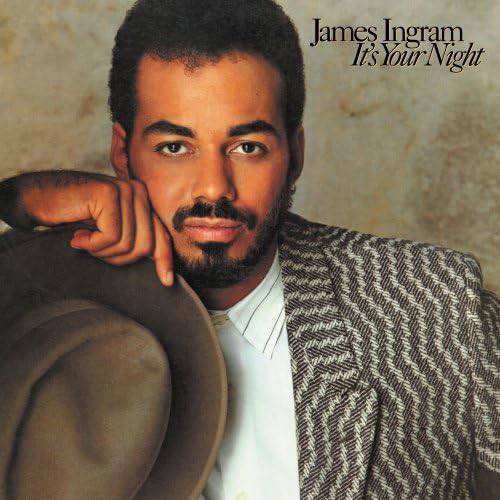
James Ingram, born in 1952, was an American singer-songwriter who once played keyboards for Ray Charles' band. He achieved a No. 1 hit on the U.S. charts with his duet with Patti Austin, Baby, Come to Me, produced by Quincy Jones.
This album was also produced by Quincy Jones and features the Grammy-winning track Yah Mo B There, a collaboration with Michael McDonald.
The album showcases contributions from Quincy Jones' remarkable network of musicians, including Larry Carlton and Paul Jackson Jr. on guitar; David Foster, Greg Phillinganes, Robbie Buchanan, and Michael Boddicker on keyboards; and Harvey Mason and John Robinson on drums. Their involvement elevates the musical quality of the record to exceptional levels.
Recommended Track: "How Do You Keep the Music Playing?"
ミThe legendary song How Do You Keep the Music Playing? was written by Michel Legrand and Marilyn Bergman for the movie Best Friends. The pianist on this track is none other than David Foster, the keyboardist who rose to fame with Airplay. The melody of the simple yet stunningly beautiful intro is unforgettable after just one listen. According to David Foster, Quincy Jones had him redo the intro countless times until it was just right. While it may sound deceptively simple, playing it beautifully proved to be incredibly challenging.
The acoustic piano that weaves the intro carries a pure, profound, and pristine tone, with every note resonating deeply and gracefully. Its aesthetic beauty lingers in your mind, replaying like a refrain. Quincy Jones himself described the song as “without question, one of my favorite pieces of music on this planet, and absolutely perfect in every way.”
At the time, James Ingram and Patti Austin were among the most accomplished vocalists in their prime. They brought this perfect song to life with their flawless vocal performances.
In 2008, Michel Legrand himself performed a self-cover of the song at a jazz festival, with Benjamin singing, showcasing the timeless brilliance of his own composition.
Featured Musicians, Albums, and Recommended Tracks
- Artists: Quincy Jones, George Benson, James Ingram, Patti Austin, David Foster, Ivan Lins, and others.
- Albums: Give Me the Night, It's Your Night
- Recommended Tracks: Give Me the Night, Love Dance, How Do You Keep the Music Playing?
The “sound & person” column is made up of contributions from you.
For details about contributing, click here.








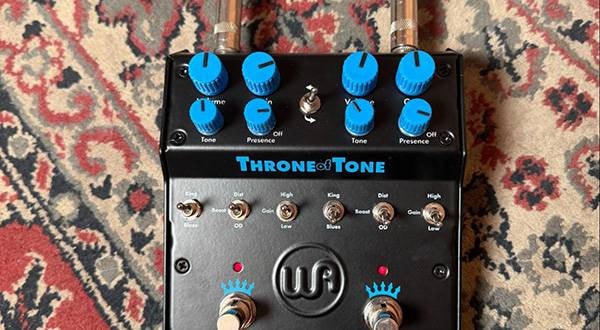
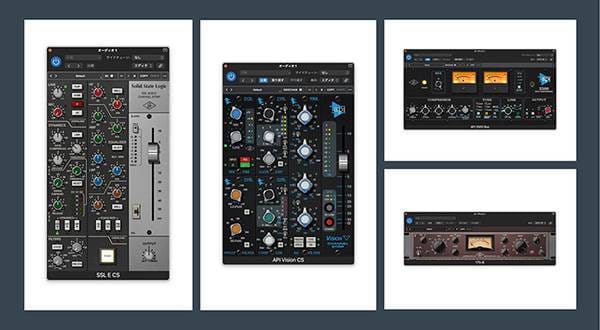

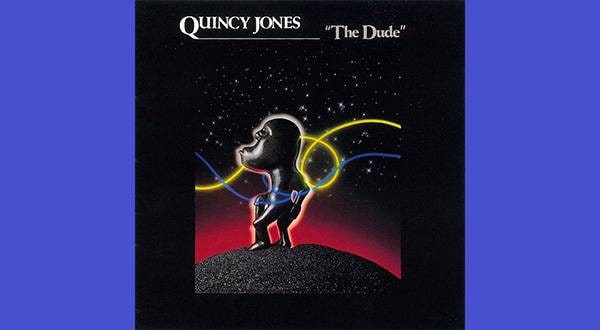
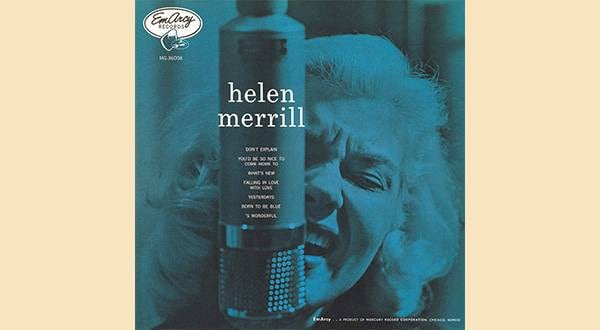


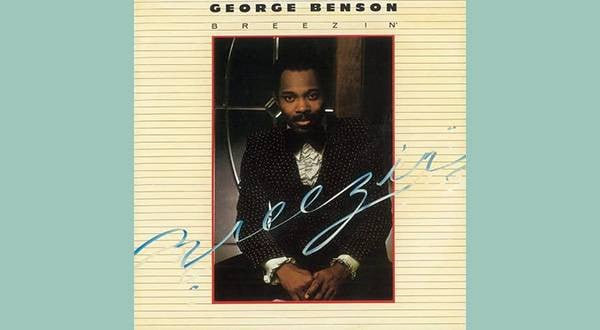
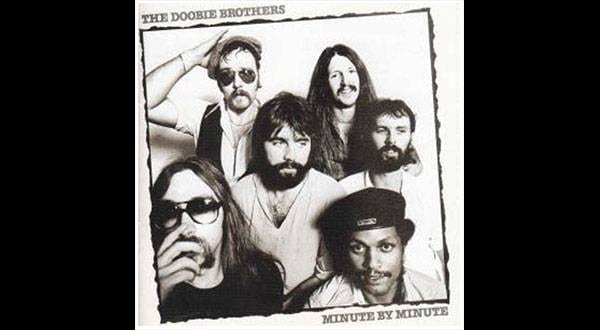
 DTMセール情報まとめ
DTMセール情報まとめ
 DTMに必要な機材
DTMに必要な機材
 ギターの種類
ギターの種類
 ギターの選び方
ギターの選び方
 ギタースタートガイド
ギタースタートガイド
 DTM・DAW購入ガイド
DTM・DAW購入ガイド














